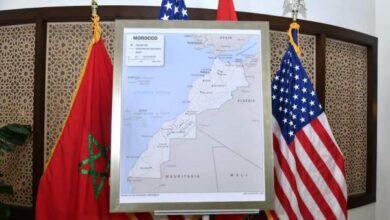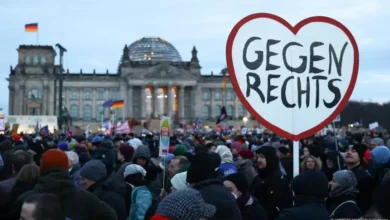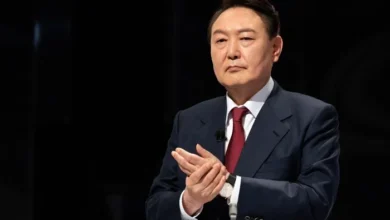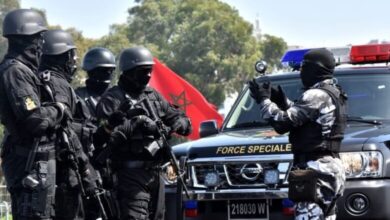The Algerian Regime Turns to Elections Whenever It Faces Turmoil
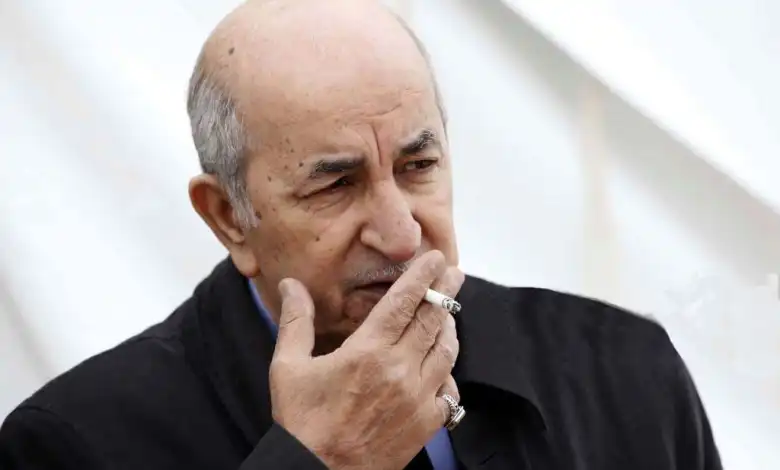
Experts believe that the flame of the pro-democracy movement that ousted Algerian President Abdelaziz Bouteflika from power has been extinguished. However, the awareness it created in society at the time still persists and can be felt in the current campaign leading up to elections with almost predetermined results.
The first slogan of the large popular demonstrations that began on February 22, 2019, in Algeria was “No to the fifth term.” Bouteflika was forced to resign in April of the same year. The movement then shifted to the slogan “No to the regime,” eventually rejecting the elections that brought President Abdelmadjid Tebboune to power at the end of that year.
The movement declined with the spread of the COVID-19 pandemic, the authorities’ suppression of demonstrations, and the imprisonment of prominent figures who led the marches, until it completely stopped.
Nasser Djabi, a researcher specializing in sociology, believes that “the Hirak was the pinnacle of Algerians’ protest movements over the past decades. It was the first collective political movement of Algerians with a peaceful nature and clear demands. Algerians said they wanted, above all, to change the political system and improve the performance of media and judiciary.”
However, “the Hirak did not achieve the demands it came out for, namely freedom and justice.”
He added to Agence France-Presse that “the Algerian regime usually relies on elections to get out of crises. Whenever it faces turmoil, it resorts to elections, although experience since the beginning of multi-party politics in 1990 proves that elections have not solved the problems of the Algerian regime.”
He continued, “The way elections are managed sends a message to Algerians that they are not a means for change,” especially for the position of the President of the Republic, “as it is not open for competition” from outside the regime’s circle.
Tebboune announced the advancement of presidential elections to September 7, while they were supposed to take place a month before the end of his term, which was set for December 2024.
Tebboune announced his candidacy for a second term, supported by the same party coalition that backed former President Abdelaziz Bouteflika in the past.
He will face two candidates: Youcef Aouchiche, the candidate of the Socialist Forces Front party, who has an electoral base in the Kabylie region, and Abdelali Hassani, the Islamist candidate and president of the Movement of Society for Peace party, who has an electoral base in conservative circles.
Many observers see the results as “predetermined” in favor of Tebboune. However, they note the number of those who came forward to withdraw nomination papers to face Tebboune, which exceeded thirty, including well-known figures such as Louisa Hanoune, the general secretary of the far-left Workers’ Party, before she decided to withdraw from the race and boycott the vote.
This assessment did not prevent one of the prominent faces of the Hirak movement, former judge and lawyer defending Hirak detainees, Zoubida Assoul, from running on behalf of her party, the Union for Change and Progress. For her, boycotting “has not achieved anything,” and “the only proper way for change is through political struggle and elections.”
Assoul defended her decision to participate, which, like 12 other candidates, was met with the rejection of her file by the Constitutional Court, saying, “Some say that matters are predetermined, but participating in elections does not mean winning from the first time and achieving results that couldn’t be achieved in 50 or 60 years. The important thing is to start the path towards change.”
